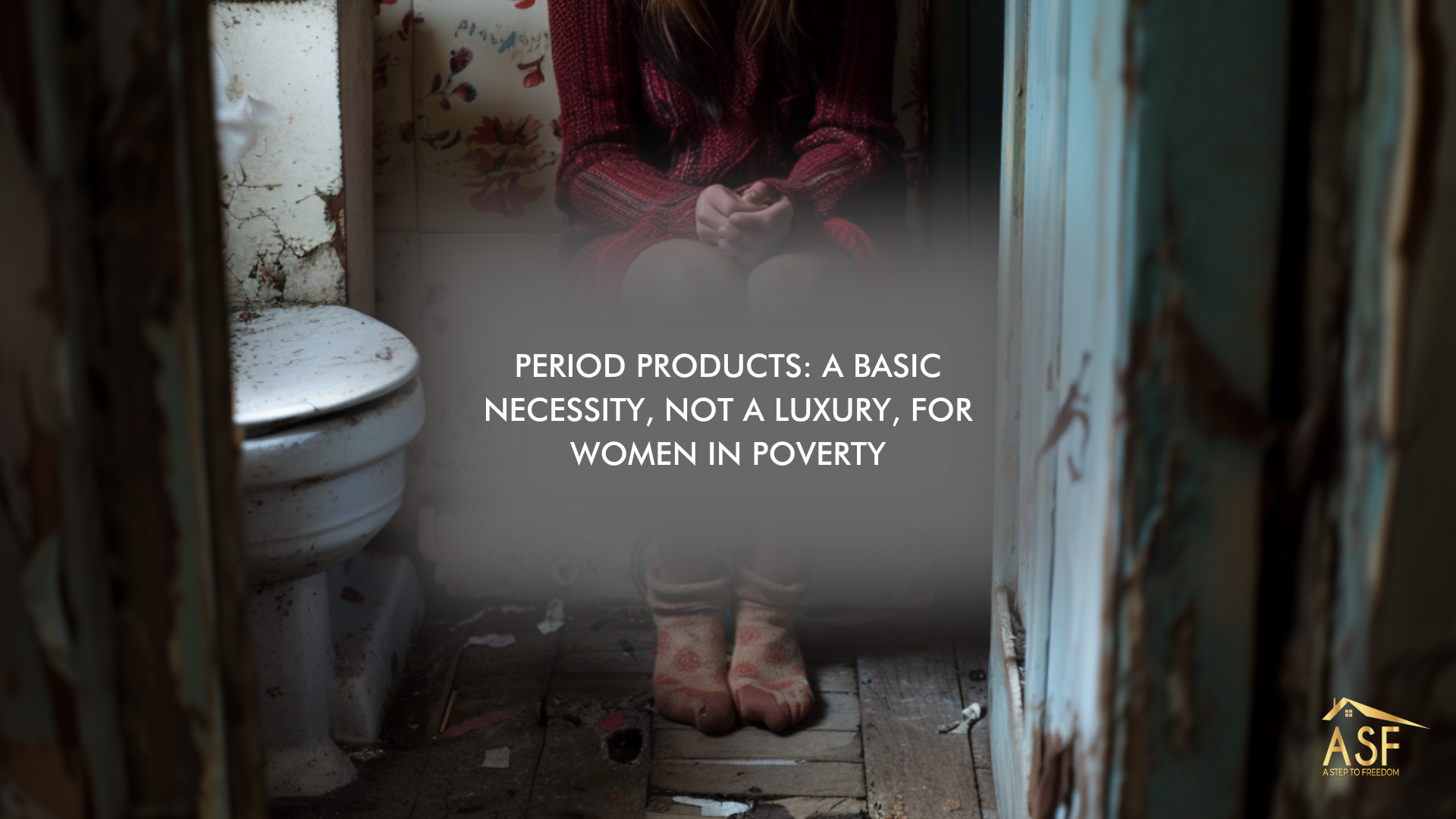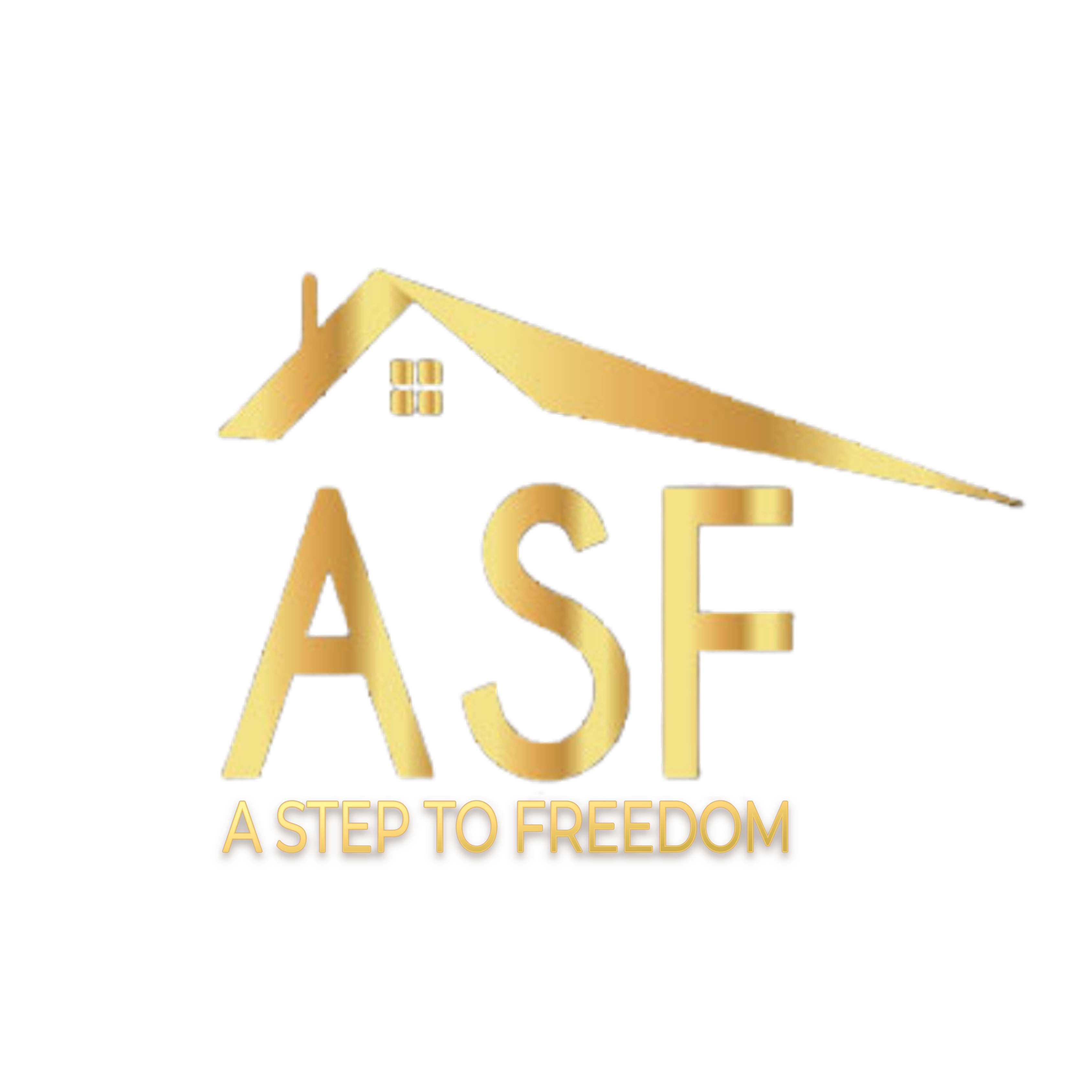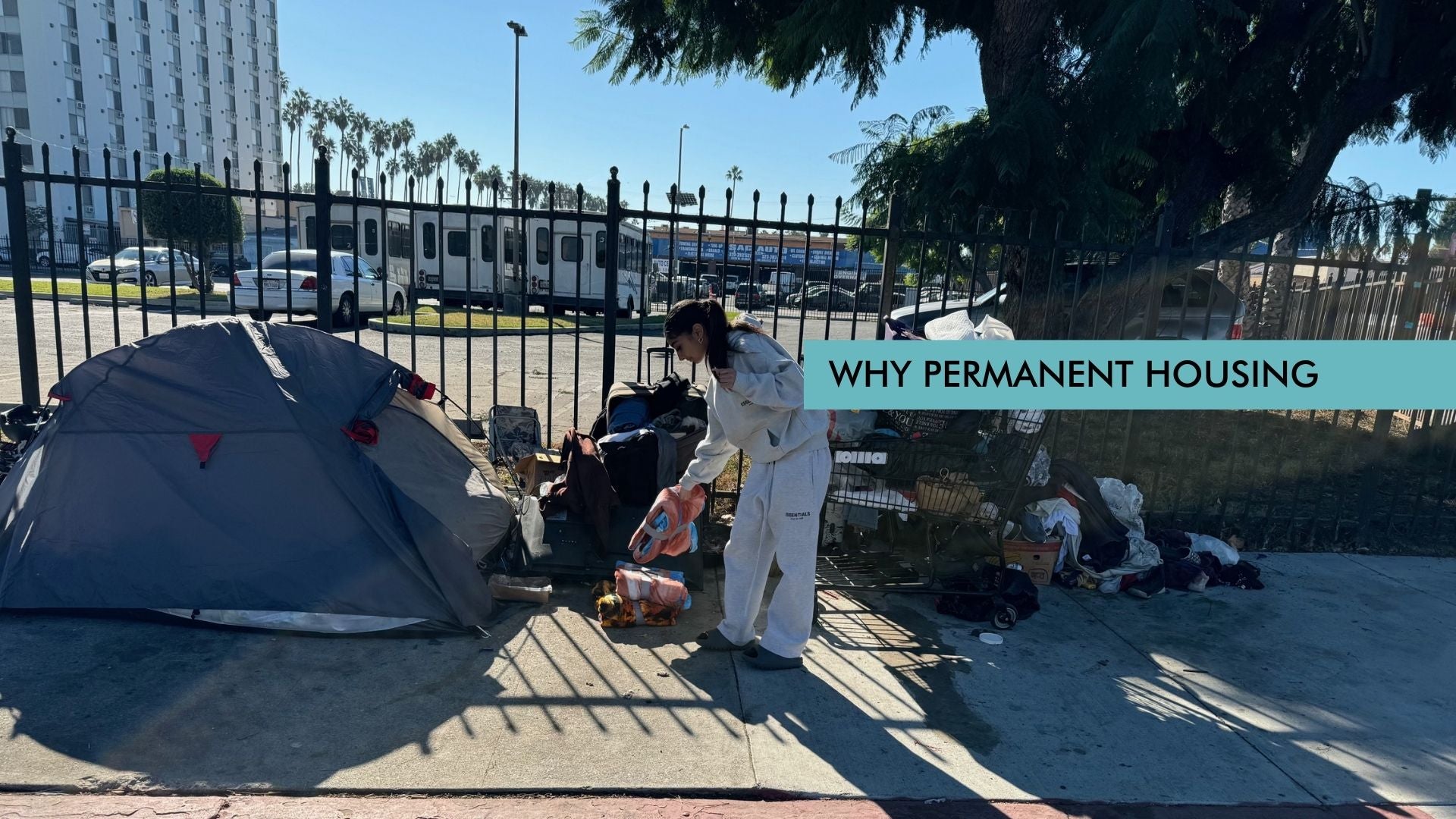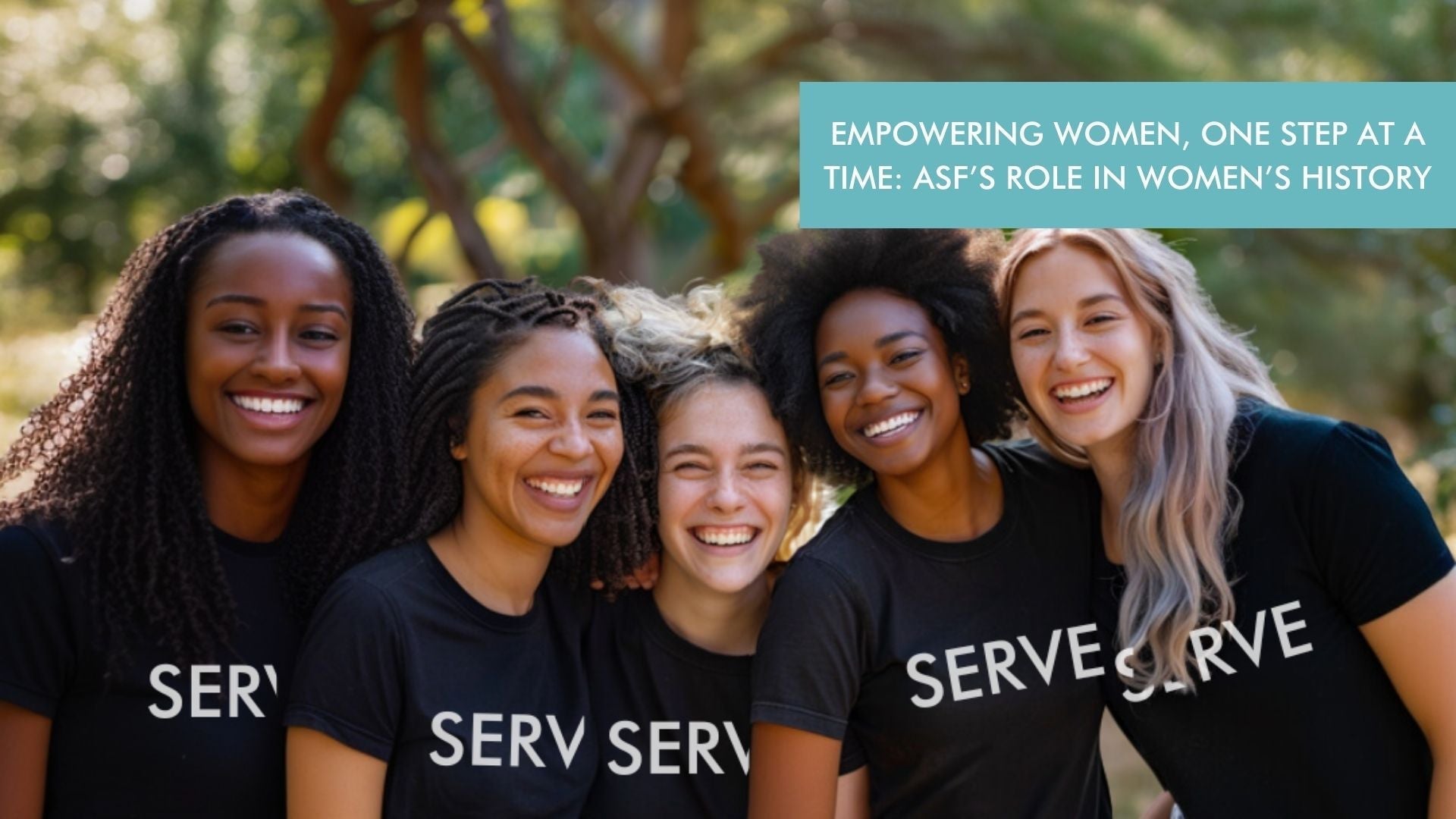Period Products: A Basic Necessity, Not a Luxury, for Women in Poverty

Period poverty is a significant and often overlooked issue affecting millions of women and girls worldwide. Defined as the inability to access or afford menstrual hygiene products, period poverty perpetuates inequality and poses serious health risks for those affected, particularly women living in poverty. In this article, we'll explore the pressing need to recognize period products as a basic necessity rather than a luxury, especially for women facing economic hardship.
Period poverty is a multifaceted issue that intersects with socioeconomic factors, cultural stigmas, and systemic inequalities. For women and girls living in poverty, the inability to access menstrual hygiene products can have far-reaching consequences on their health, education, and overall well-being. Without access to pads, tampons, or menstrual cups, women are forced to resort to unsafe and unhygienic alternatives, such as rags, newspaper, or even leaves, putting them at risk of infections and reproductive health complications.
Lack of access to period products compromises women's health and hygiene, leading to a range of physical and psychological consequences. Menstrual hygiene products are essential for maintaining cleanliness during menstruation, preventing infections, and ensuring menstrual health. Without access to these products, women may experience discomfort, embarrassment, and shame, impacting their self-esteem and quality of life. Moreover, untreated menstrual hygiene-related infections can lead to more severe health complications, further exacerbating the cycle of poverty and inequality.
Several barriers contribute to the pervasive issue of period poverty, including economic constraints, cultural taboos, and inadequate policies and infrastructure. For women living in poverty, the high cost of menstrual hygiene products often forces them to prioritize other essential needs, such as food, housing, or healthcare, over period products. Additionally, cultural stigma surrounding menstruation perpetuates shame and silence, making it difficult for women to seek help or advocate for their needs. Moreover, inadequate menstrual hygiene management facilities, such as lack of private toilets or disposal bins, further exacerbate the challenges faced by women in poverty.
Addressing period poverty requires a multifaceted approach that addresses the root causes and systemic inequalities perpetuating the issue. Governments, policymakers, and organizations must prioritize menstrual equity as a fundamental human right and implement policies and programs to ensure universal access to menstrual hygiene products. This includes providing free or subsidized period products in schools, workplaces, and public spaces, as well as investing in menstrual education and advocacy initiatives to dismantle cultural taboos and stigma.
Community-based organizations and grassroots initiatives also play a crucial role in addressing period poverty at the local level. By providing free menstrual hygiene products, conducting outreach and education programs, and advocating for policy change, organizations like A Step to Freedom or Free From Hardship, empower women and girls to manage their periods with dignity and confidence. Additionally, businesses and corporations can contribute to the fight against period poverty by donating products, funding initiatives, or implementing menstrual leave policies to support their employees.
To truly address period poverty, we must challenge the prevailing narrative that period products are a luxury rather than a basic necessity. Menstruation is a natural and essential aspect of women's health, and access to menstrual hygiene products is a basic human right. By reframing the conversation and advocating for menstrual equity, we can break down barriers, reduce stigma, and ensure that all women and girls have the resources they need to manage their periods safely and with dignity.
Period poverty is a pressing issue that demands urgent attention and action from policymakers, organizations, and individuals alike. By recognizing period products as a basic necessity and prioritizing menstrual equity, we can empower women and girls to lead healthy, dignified lives free from the constraints of poverty and inequality. Together, let's work towards a future where access to menstrual hygiene products is universal and menstruation is no longer a barrier to women's health and well-being.
DONATE NOW TO INCREASE AWARENESS AND SUPPORT FOR PERIOD POVERTY.
Related articles
Why Permanent Housing and Workforce Development Are Core to Our Mission
At A Step to Freedom (ASF), our mission is rooted in creating long-term pathways to stability for individuals impacted by homelessness, incarceration, and systemic barriers. We don’t just offer services—we provide solutions. And two of the most critical pillars of that solution are permanent housing and workforce development. These aren’t just programs. They’re lifelines. Together, they address both the urgency of today and the sustainability of tomorrow. Housing Is More Than a Roof—It’s a Foundation We believe permanent housing is a human right. When a person secures safe, stable shelter, it opens the door to healing, progress, and possibility. Without a consistent place to rest, recover, and regroup, navigating employment, reunifying with family, or managing health becomes nearly impossible. That’s why our interim housing program isn’t the end goal—it’s a stepping stone. Permanent supportive housing is the true milestone. It marks the moment a person no longer lives in survival mode but begins to rebuild their life on solid ground. Workforce Development Creates Dignity and Direction At ASF, we know that financial independence plays a vital role in breaking the cycle of homelessness. Through our Workforce Development program, we offer job readiness training, life skills, and career exploration—all designed to equip our clients with the confidence and tools they need to thrive in today’s job market. But beyond the paycheck, employment restores something deeper: dignity, purpose, and self-worth. When someone can support themselves and their family, they are empowered to reclaim agency over their future. That’s transformation. When the Two Work Together, Lives Change We’ve seen it time and again: when clients move into permanent housing and complete our workforce development cohorts, their lives shift dramatically. They reconnect with family. They enroll in school. They start businesses. They give back to their communities. These outcomes don’t happen by accident—they’re the result of strategic, trauma-informed, wraparound support designed to meet people where they are and walk with them as they rise. This Is Why We Do What We Do Permanent housing and workforce development are more than programs—they’re proof points. They show that with the right support, people don’t just survive adversity—they grow through it. They start over, stronger. They break cycles that have lasted generations. And this is the heart of our mission: to ensure that every person who walks through our doors leaves with not just hope, but a plan.
Empowering Women, One Step at a Time: ASF’s Role in Women’s History
Throughout history, women have led movements, built communities, and changed the world—often while overcoming incredible barriers. Yet, for many women today, especially those facing homelessness, justice involvement, and economic hardship, opportunities for stability and success are still out of reach. At A Step to Freedom (ASF), we recognize that empowering women is key to building stronger communities and breaking cycles of poverty and incarceration. For over three decades, ASF has provided life-changing programs that support women in finding housing, securing employment, accessing mental health resources, and reuniting with their families. As we celebrate Women’s History Month, we honor the resilience of women throughout history by ensuring that the women of today—especially those facing the toughest challenges—have access to the resources they need to heal, rebuild, and thrive. The Reality for Women Facing Homelessness & Reentry Women experiencing homelessness and reentry face unique struggles that make their journey to stability even more challenging: 💔 Domestic violence is one of the leading causes of homelessness for women. Many women flee unsafe homes only to find themselves without a stable place to go. 💔 Mothers experiencing homelessness often have to make impossible choices. Without secure housing, many women lose custody of their children, making reunification a long and difficult process. 💔 Formerly incarcerated women struggle with economic barriers. Many employers refuse to hire women with justice-involvement histories, making financial independence difficult to achieve. 💔 Period poverty disproportionately affects unhoused women. Without access to basic menstrual hygiene products, many women face additional health risks and barriers to dignity. ASF is breaking these barriers by providing programs tailored to meet the needs of women in crisis. ASF’s Commitment to Women’s Empowerment ASF believes that empowering women is more than providing temporary relief—it’s about creating lasting change. Our programs help women regain their footing, build confidence, and secure the resources they need to move forward. Housing & Family Reunification: A Fresh Start A stable home is the foundation for rebuilding a woman’s life. ASF provides:✔️ Transitional housing to give women a safe place to heal and stabilize.✔️ Permanent housing support to help women secure long-term homes.✔️ Family reunification services to reconnect mothers with their children after periods of separation. Workforce Development: Creating Economic Independence We believe financial security is key to long-term stability. Our workforce development programs help women:✔️ Gain career training and employment placement opportunities.✔️ Learn financial literacy to build savings and plan for the future.✔️ Connect with employers willing to give second chances to formerly incarcerated women. Period Poverty & Women’s Health: Dignity for All Women ASF is committed to eradicating period poverty by distributing hygiene products to unhoused women. Thanks to partnerships with brands like The Honey Pot, we are ensuring that no woman has to choose between food and menstrual products. Reentry & Mental Health Support: Healing from Trauma Justice-involved women face significant barriers after incarceration. ASF’s reentry programs provide:✔️ Mental health services to help women process trauma.✔️ Legal assistance to remove barriers to employment and housing.✔️ Community support networks to reduce isolation and increase self-confidence. Honoring the Women Who Inspire Us ASF is honored to work with women leaders, community advocates, and volunteers who are paving the way for a more just and equitable future. This Women’s History Month, we celebrate: 🌟 The resilient women in our programs who have fought for a second chance.🌟 The ASF team and volunteers who work tirelessly to support women in need.🌟 The women leaders and activists who have broken down barriers so that future generations can thrive. Women’s history is still being written, and at ASF, we are committed to making sure every woman has the opportunity to be part of it. How You Can Support ASF’s Women’s Initiatives This Women’s History Month, you can be part of the movement to uplift and empower women by: ✅ Donating: Your support provides housing, job training, and essential supplies for women in need. Donate today.✅ Shopping Merch for Cause: Every purchase from our Merch for Cause collection supports ASF’s programs for women. Shop now.✅ Volunteering: Give your time to help women transition into stability and success. Sign up here. Together, we can empower women, one step at a time—not just this month, but every day of the year. #ASFImpact #WomensHistoryMonth #EmpowerWomen #SecondChances #EndHomelessness


